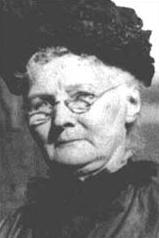Labor In America: 112 Years On
Bradford Plumer offers a brief history lesson on this most unusual - for America - holiday. Something to talk about around the barbeque or between quarters:
...Sadly for the politicians, though, gunning down the working class has never looked good right before an election year. And 1894 was an election year. So Congress rushed to pass legislation establishing Labor Day, and Cleveland signed the bill in an attempt to look kinder and gentler to the voters. It didn't work—Cleveland lost—but now we have a holiday that both celebrates a good cause and was essentially a political gambit meant to paper over state-backed repression of organized labor.

The struggle continues, I suppose.
...Sadly for the politicians, though, gunning down the working class has never looked good right before an election year. And 1894 was an election year. So Congress rushed to pass legislation establishing Labor Day, and Cleveland signed the bill in an attempt to look kinder and gentler to the voters. It didn't work—Cleveland lost—but now we have a holiday that both celebrates a good cause and was essentially a political gambit meant to paper over state-backed repression of organized labor.

The struggle continues, I suppose.

1 Comments:
So... Labor Day weekend is upon us. How fun. Come to think of it, Labor Day has always seemed like a strange holiday to me. Not because of the cause in question—far from it—but because of its dubious origins. Long before it was established, workers in the late 19th century had been demanding a national holiday celebrating their efforts for years. In 1882, laborers in New York even took an unpaid holiday to march in Union Square in support of (among other things) just such a holiday. But nothing happened.
It wasn't until the Pullman strike in 1893 that things actually changed. Pullman, Illinois, is, I've always thought, a fascinating town. There's the fact that Pullman created it to house his workers and shield them from the moral depravities in Chicago. There's the fact that it was a feudal state, where workers lived in row houses, kept in debt slavery, bought goods from Pullman-owned stores, drew paychecks from Pullman-owned banks, and had their rent—set by Pullman rather than the market—garnished automatically. All aspects of their lives were regulated. Calling it "totalitarian" may be hyperbole but not by much.
Anyway, any basic history book will describe how the Pullman company took a hit during the 1893 depression, workers saw their paychecks shrink but rents increase, and went on strike, led by Eugene Debs and the American Railway Union. Riots broke out. Trains stopped running. Railway executives panicked. So Grover Cleveland sent in 12,000 troops to break the strike. 13 workers were killed, Debs was hauled off to jail, the ARU dismantled, and industrial unions were effectively finished as a force for the next 40 years. We know the drill.
Sadly for the politicians, though, gunning down the working class has never looked good right before an election year. And 1894 was an election year. So Congress rushed to pass legislation establishing Labor Day, and Cleveland signed the bill in an attempt to look kinder and gentler to the voters. It didn't work—Cleveland lost—but now we have a holiday that both celebrates a good cause and was essentially a political gambit meant to paper over state-backed repression of organized labor. Like I said, it's always seemed a bit odd.
I tend to think that one reason Western Europe has had a robust labor movement, while the United States has not, is that in the early days the American government was less ashamed to use troops to mow down strikers and organizers. In the 19th century the Knights of Labor were an impressive and truly progressive American labor organization that fought for broad-based social change—running pro-labor candidates for office and organizing women, (some) minorities, and unskilled workers, unlike the exclusionary unions that came later. But the movement was destroyed by state-backed violence and in their place arose the parochial and conservative trade unions. Tempting to imagine what might have been.
The Pullman strike also reminds me of a curious fact about the labor movement during the Depression. In 1933, during the first wave of industrial uprisings, many of the striking unions weren't much concerned about wages and hours. They were more concerned about the tyranny of the workplace—at Ford's factories, for instance, security chief Harry Bennett's 'servicemen' were beating assembly workers on the spot simply for talking in line. Capricious and brutal foreman were another issue. Many company towns, meanwhile, were Soviet-style dictatorships run by steel barons, and early strikes often simply focused on basic civil liberties rather than overtime or benefits. Pullman, by these standards, was actually one of the less severe offenders.
Post a Comment
<< Home